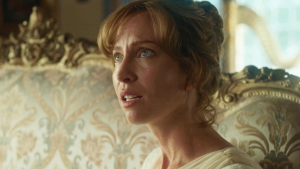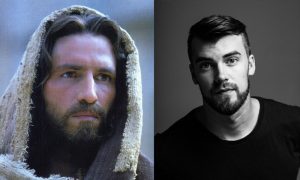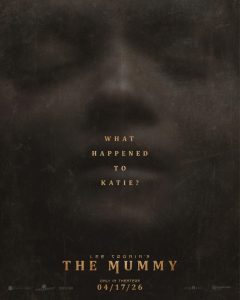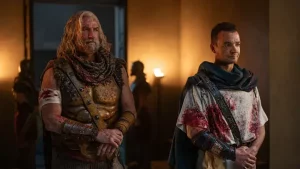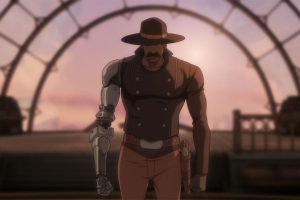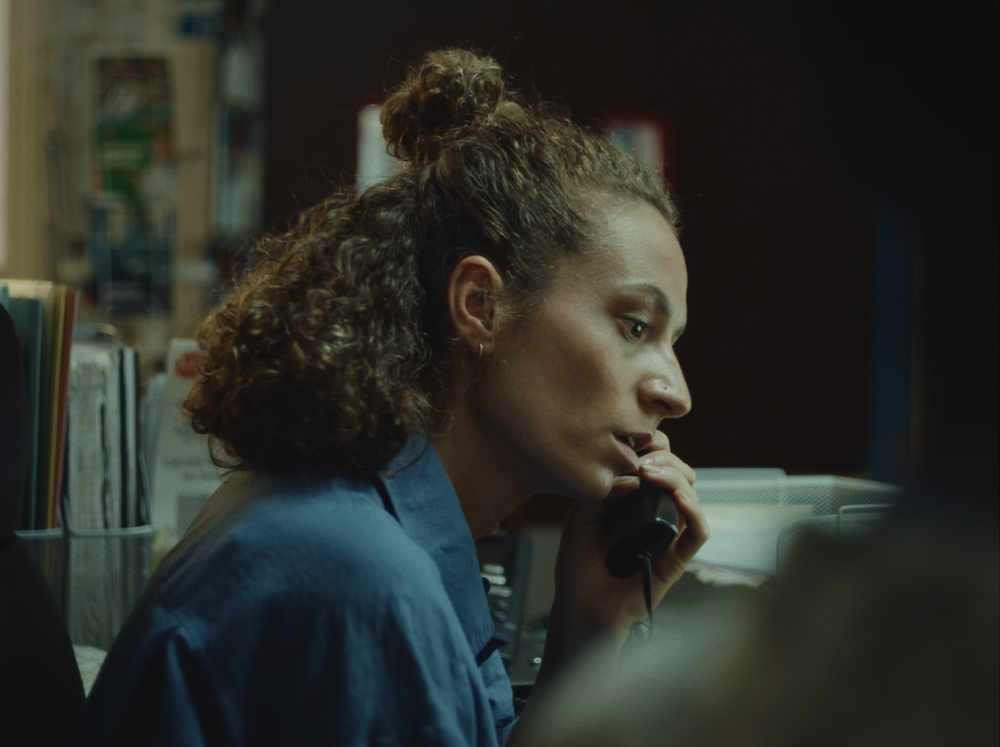
★★★★
Directed by #TaraAghdashloo
Written by #GemmaBarnett
Starring #GemmaBarnett, #BiancaBeckles, #PaulineTomlin
Film Review by: Lawrence Bennie
Booking a doctor’s appointment, or simply just being able to get through to speak to a doctor, has tragically become an all-too familiar obstacle across the country and beyond, pre- and post-pandemic. In Bridge, the debut short film from writer and star Gemma Barnett, the audience are placed in the middle of such a situation; only for things to take a surprising turn.
A co-production from BBC Films and Kusini Productions, Bridge is also the second short from Iran-born filmmaker Tara Aghdashloo. Interestingly, Aghdashloo’s film has its origins in Gemma Barnett’s own award-winning poem which later formed the springboard for the script written by both Aghdashloo and Barnett herself.
Working through the daily barrage of surgery calls, Greenfield Gardens receptionist Bridget (Barnett) takes a call from Kirsty Taylor (Bianca Beckles). Struggling to breath normally at home, and endlessly stuck in a queue on the phone, Kirsty eagerly wants to speak to a doctor. Unexpectedly, Bridget becomes confidant to Kirsty when the pair recall they went to the same school and, against the endless tide of cold, clinical calls, they gradually establish a connection.
The talented team of writer and director begin their story with the striking shot of an elderly-looking couple gracefully dancing through a swirling mist, only for it to be shattered by the sudden appearance of a somewhat ominous figure and the irritating clanging of a phone’s alarm clock. Here, we find Bridget – disinterested and disconnected from the world around her. Kudos here to Director of Photography Kia Fern Little who creates a marvellous image of light blue brightly beaming through Bridget’s bedroom window as she lies demotivated before slowly rising to begin another day of monotony and despondency. The world outside is far from dark, but Bridget is lost in an unhappy realm of her own, only underlined further when an abrasive cyclist (Charlie Atkins) snaps at her over a near-collision. Arriving at work, Bridget is pounced on before the clock even strikes 8am. Her only form of connection appears to with her colleague Jenny (Pauline Tomlin) who nonetheless forebodes that the day is going to be “a busy one”. Bridget then mans the torrent of demanding phone calls, whilst Jenny deals with the stream of walk-ups.
The strength of Bridge film lies in its realism and Aghdashloo lends these scenes a real sense of credibility and marked understatement. Even when things are abruptly disrupted by Kirsty’s call, the script doesn’t slip into melodramatics. Instead, Aghdashloo keeps it simple and real throughout and it really is here where the performances of Barnett and Beckles bring the piece to life as their relationship unfolds. Notably, Aghdashloo and Barnett choose to integrate Kirsty directly into the story. She remains not just a disembodied voice over the telephone but becomes a secondary character as we cut away to see her anxiously struggling but, somehow, holding it all together at home. By contrast, we are then also brought closer into Bridget’s own psychological world through a series of flashbacks depicting the failed relationship between Bridget and her disappointed boyfriend (Sam Landon). Again, Aghdashloo retains the admirable simplicity throughout and it’s convincingly effective.
By the story’s end, Bridget has begun to reconnect with her life and the world around her thanks to her chance encounter with Kirsty. Of course, it is not an unfamiliar narrative, but Barnett’s story is told with subtlety and sincerity by her director and the performances of each of the cast bring a believability to its beats.
#LawrenceBennie



